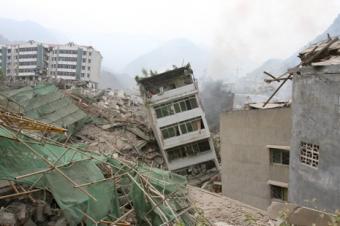 Peter Hessler’s piece in the New Yorker:
Peter Hessler’s piece in the New Yorker:
Mr. Hessler, the Internet connection has been broken for 30 hours, I just opened my email, thanks very much for writing to me. I am sorry to say my parents’ house collapsed, but they are fine, when the earthquake happened, they were working in the field, but my niece was badly wounded when she was at school. My parents are with me in the city center. We are busying go to and coming back to hospitals to see our relatives. my house is full of people, my uncles, my aunts, and many other. I am too busy to write, I will let you know more when I am free. Thanks.
DavidAt my home in Colorado, I received David’s e-mail early Tuesday morning, as the news about the earthquake in southwestern China worsened. As of now, the official death count is more than thirteen thousand, and that number will undoubtedly rise in coming days. I hope that I continue to hear from friends who are safe. David was a student of mine in the mid-nineteen-nineties, when I was a Peace Corps volunteer in Sichuan province; that was the English name he had chosen for himself. Like most of my students, he had grown up in the countryside. Many of the e-mails I’m now receiving indicate that people in rural settlements have generally fared better than city residents. A young man named Willy described his wife’s village in northern Sichuan:
In Nancy’s home town . . . their parents were dealing with the newly picked tea and they found the house shake, and they ran out of the room, and the tiles fell off, the windows shook hard, and the water in the jars in their yard jumped out of the jar. People found it very hard to stand and many of them just took hold of the trees to keep balance.
But the truth is that nowadays rural Chinese villages are home mostly to the very old and the very young. Virtually everybody of working age has migrated, and the population of urban centers has exploded—the National Bureau of Statistics estimates that a hundred and thirty million rural Chinese are now living in cities. Construction is fast and often slapdash; during a recent visit to Lishui, a city in Zhejiang province, I was told by workers that it generally takes fifty days to build a two-story factory. This is the kind of structure that has collapsed in cities such as Mianyang, which is close to the epicenter of the quake.






